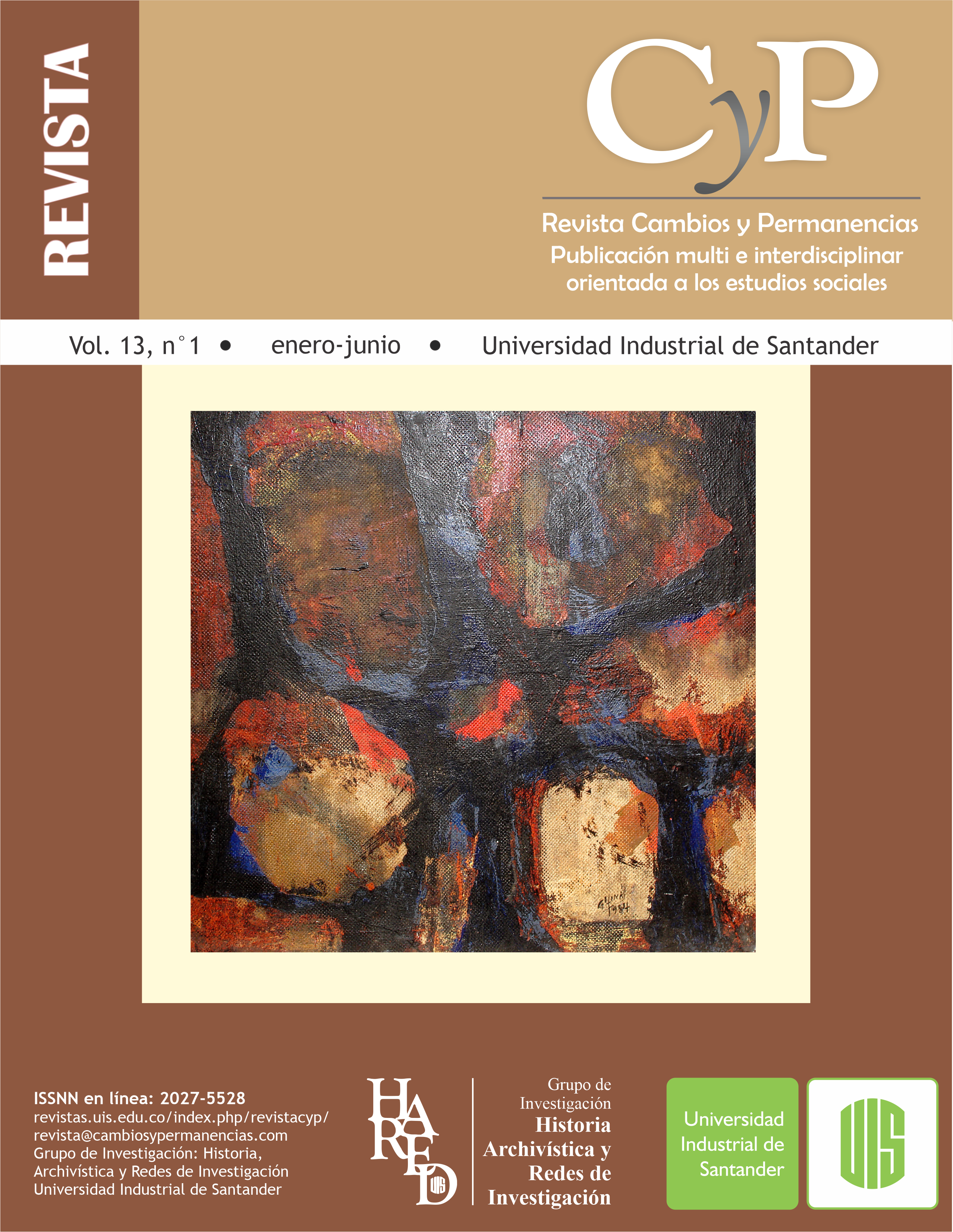It takes many politics. The formation of a new social subject through Social Networks
Published 2022-06-05
Keywords
- politics,
- Internet,
- Social Networks,
- exclusion
How to Cite
Copyright (c) 2022 Revista Cambios y Permanencias

This work is licensed under a Creative Commons Attribution 4.0 International License.
Abstract
This essay is based on political sociology, it aims to glimpse the need for political participation of the social subject that arose with the use of the internet and social networks that have generated a communicative-cultural revolution in humanity with precedents comparable to writing and fire (Cassin, 2014, p. 15)[1]. In this scenario and thanks to the natural and objective conditions of the Internet, the subject has been able to access immense volumes of information that have allowed him to reassess historical contexts in a different way and participate synchronously in social problems. We understand this participation as politics because it is the product of free communication and freedom of expression that has had a strong global impact.
Scientific, empirical and vulgar or pre-scientific knowledge has been offered on Internet platforms in a democratic way, reaching a global sociability unprecedented in history. In this context, through the Internet, the economic interest of Science was undressed, at the same time the historical human injustice[2] and social manipulation through ideological devices (Basualdo, 2019, p. 95), information that users of this medium accessed. This communicative revolution has generated a new political subject that requires a new theory.
[1] Barbara Cassin points out that one of Google's goals since 2014 has been to digitize all the books in the world's libraries and put them at the service of the global public. Today 2022 that project must have a result and impact on human culture which is what we call cultural revolution in this essay.
[2] The current social subject is made up of fewer but richer billionaires, owners of large business and financial emporiums that have globalized and instrumentalized the decisions of States for their benefit, politics and law. A middle class indebted and saturated with hours of work on the verge of losing everything or being subjected to the decisions of millionaires and private and public institutions. And of thousands of millions of impoverished people, for example, displaced persons and immigrants, without social security and busy almost all of their time to survive, without being able to study and without the possibility of economic advancement.
Downloads
References
- Alarcón Montoya, D. y Trujillo Candelo, D. (2014). Construcción de subjetividad en la red social twitter [Artículo de grado en psicología, Universidad de San Buenaventura, Cali]. http://bibliotecadigital.usbcali.edu.co:8080/bitstream/10819/2088/1/Construccion_%20Subjetividad_Twitter_Alarcon_2014.pdf.
- Basualdo, E. (2019). Fundamentos de Economía Política. Los patrones de acumulación, de los clásicos al neoliberalismo del siglo XXI. Siglo XXI Editores.
- Campos Hernández, R. (2008). Incertidumbre y complejidad: reflexiones acerca de los retos y dilemas de la pedagogía contemporánea. Revista Electrónica, (8), 1-13.
- Cassin, B. (2014). Googléame. La segunda misión de los Estados Unidos. Progreso S.A.
- Frewnkel, S. y Kang, C. (2021). Manipulados. La batalla de Facebook por la dominación mundial. Pengium Random House Grupo Editorial.
- Gadamer, H. (2020). Deconstrucción y hermenéutica. https://www.bloghemia.com/2020/08/deconstruccion-y-hermeneutica-por-hans.html.
- Guerra, F. (2010). Modernidad e independencias. Ensayos sobre las revoluciones hispanas. Fondo de Cultura Económica.
- Hobsbawm, E. (1999). Historia del siglo XX. Crítica.
- Koselleck, R. (2001). Los estratos del tiempo. Estudio sobre la historia. Ediciones Paidós.
- Laney, D. (16 de mayo de 2021). Big Data: qué es y por qué importa. https://www.sas.com/es_co/insights/big-data/what-is-big-data.html
- Marx, K. (2000). El capital. Ediciones Akal.
- Monedero, J. (2011). Democracia y Estado en América Latina: por una imprudente reinvención de la política. Crítica y Emancipación. Revista Latinoamericana de Ciencias Sociales, (4).
- Odisea, H. (2000). Hogar o exilio en el futuro digital en S. Zuboff (Ed.), La era del capitalismo de vigilancia. La lucha por un futuro humano frente a las nuevas fronteras del poder. Editorial Planeta.
- Thompson, E. P. (2012) La formación de la clase obrera en Inglaterra. Capitán Swing.
- Zuboff, S. (2020). La era del capitalismo de vigilancia. La lucha por un futuro humano frente a las nuevas fronteras del poder. Editorial Planeta.
